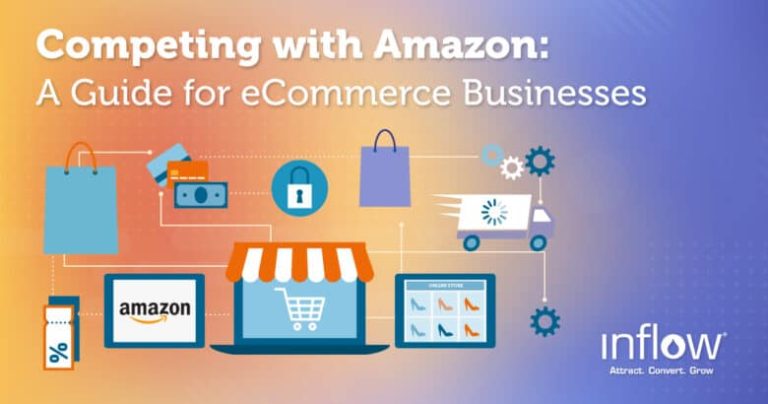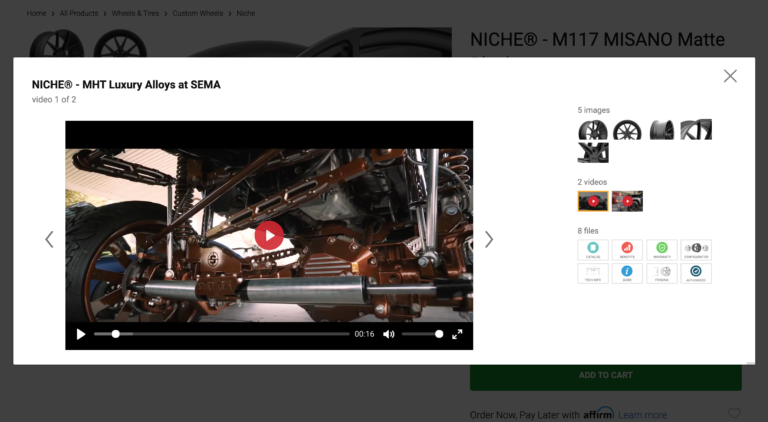If someone searches for your brand in Google, you want to dominate the results they see. If you forgo branded paid search campaigns and leave it up to chance, your business will miss out on huge opportunities for brand awareness, conversions, and lifts in revenue.
But how can you make sure you’re using your branded campaigns in the most efficient way for your business’s goals and budget?
In this article, I’ll show you exactly how to improve branded PPC campaigns and cut back on unnecessary spend. With the right optimization, your eCommerce business can start seeing some amazing results — like our client’s $240,000 increase in revenue per year.
Let’s get started.
Generic vs. Branded Paid Search Campaigns
Before we talk about how to fix your branded PPC campaigns, we need to explain exactly how they’re different from general campaigns and why they’re so important in digital marketing.
In short:
- Branded campaigns target people searching specifically for you.
- General campaigns target people searching generally for the things you sell.
What is a General Paid Search Campaign?
General, non-brand search campaigns target the vast majority of user searches. Typically, these searches are low-purchase-intent, general terms like “SUV” or “new car financing.” They don’t address a specific brand preference and often indicate that a user is still early in the purchase funnel.
What is a Branded Search Campaign?
On the other hand, a branded search campaign targets those keywords that are (you guessed it) brand-specific. These campaigns occur when someone searches Google specifically for your brand or company, with or without a product name attached.
So, rather than the general car-related search terms above, PPC branded keywords would be examples like “Jeep” or “Jeep wrangler.” These typically come with a higher purchase-intent and, thus, a higher likelihood of converting to a sale.
How Google Search Ads Evaluate Brand vs. Non-Branded PPC Campaigns
When it comes to search, Google first and foremost wants to provide the most relevant information for users. Therefore, it calculates the cost and relevancy of a campaign by estimating the likelihood that a searcher will click on a certain result.
Let’s go back to the previous Jeep example. When users type the keyword “Jeep” into their search engine, Google knows they’re looking specifically for a Jeep, not generally for a new SUV. So, even if Ford or GM runs a campaign targeting “Jeep” as a keyword, Jeep’s result is still by far the most relevant result, which is why Google is likely to list it first.
Why are Branded Search Campaigns So Important?
If you’re an online retailer, you should have branded campaigns running at all times. Why?
- You can use these campaigns to control your brand’s messaging. While your website pages will likely appear in organic search results for branded keywords, you can’t easily control which organic listings show up, even with the best SEO strategies. With paid search ad campaigns, you have much more control. You can experiment with different landing pages, products, deals, ad copy, and more to see which generates the highest click-through rate (CTR) and conversion rate on branded keywords.
- If you don’t buy this space, your competitors will. Take this example: When I search for “Lexus RX,” I see that Infiniti is running ads, even though this isn’t their branded campaign. If Lexus hadn’t bought this ad space, Infiniti would be sitting in the top spot — potentially stealing away high-value customers from Lexus.
- Branded search campaigns should have the highest relevance and click-through rates. Because of their high search-intent, these PPC branded keywords are easy wins for your eCommerce company. Target them properly, and you’ll see the results start flooding in.
- Brand search campaigns are among the cheapest campaigns you’ll ever run. If you’re running your campaigns right, Google will reward you for being the most relevant result for a searcher with a cheaper cost-per-click (CPC).
How to Improve Your Branded PPC Campaigns
Setting up a branded search campaign doesn’t guarantee success. We’ve found that many businesses who set up branded campaigns on their own inadvertently get in their own way — causing themselves to overspend on both branded and general campaigns. Most of the time, they don’t even realize it.
The good news: Finding — and fixing — this issue is a straightforward process.
When we applied the following approaches to one of our eCommerce clients, we lowered CPC for their own brand terms by 19%. In turn, they saw their annual return on ad spend (ROAS) shoot up by 1,600% — a change that amounted to an additional $240,000 in revenue per year.
Want to see similar results? Use our tips for maximizing your branded PPC campaigns.
Step 1: Check If You’re Competing Against Yourself
If you’re running both brand and general campaigns, you need to know whether your campaigns are competing against each other. To do this, identify what search terms are triggering your branded and general campaigns in Google Ads (previously known as AdWords).
A search term is a search word or phrase that triggered the campaign to display on a user’s search.
You can find these search terms using the Search Terms Report in AdWords.
To find the report:
- Open your branded campaign.
- Click the “Keywords” tab.
- Click “Search” terms.
From there, you’ll see data for which search terms triggered impressions and clicks.
Repeat the process for any of your general campaigns. Compare the results for the two and see if there’s any overlap. If you see the same keywords triggering branded and general campaigns, you’re hurting your results for both types of campaigns — and raising your overall price.
The only things that should trigger a brand campaign are the name of your company, your services, or your products. If your branded campaign is being triggered by general terms like “SUV,” the click-through rate is likely to go way down, lowering the relevancy score for the ad — and raising the price of the campaign.
Why Does This Overlap Happen?
So, why does Google trigger your brand campaign for general terms in the first place?
This can happen with any branded paid search campaign, but it’s especially likely to happen when:
- The name of your product or service is similar to your brand name. If your brand name is “Best Costume Co.” and you sell costumes, search terms like “costumes,” “best costumes,” or even “best costumes in New York” will naturally trigger both campaigns.
- Your company name is similar to a competitor’s name, ie. your competitor is “Better Costumes Co.” When someone searches for your competition, you might want them to find you, but not through your branded campaign — that’s what general search campaigns are for.
Step 2: Use Negative Keywords to Clean Up Your Branded Campaign
If you are accidentally competing with yourself, the fix is both simple and straightforward: Use negative keywords to clean up your branded campaigns.
To use my earlier example, if your company is “Best Costumes Co.,” there’s a very good chance the keyword “best costumes” is triggering your branded campaign. If so, simply remove “best costumes” from your branded campaign by adding it as a negative keyword.
Use your general campaign to compete for “best costumes” or any other general keyword that was triggering your brand campaign.
When you purify your branded campaign, you’re increasing the relevance of brand keywords. You inform Google you are the company to serve up for these brand-specific keywords. By doing this, you become the most relevant site for your branded terms and lower your overall campaign costs.
Set Your Branded Paid Search Campaigns Up for Success
Branded search campaigns are an easy way for your eCommerce business to take advantage of those customers who are ready to purchase. When you make your website and products highly visible through Google Ads, your bottom line will reap the benefits — as long as you do it properly.
Follow our simple steps above for improving your campaigns, and you’ll be in good shape. Want professional marketers to handle it for you? Our eCommerce PPC ads team is happy to evaluate your campaigns and uncover new opportunities to increase ROAS when you request a free proposal anytime.
Good luck, and happy branding!






